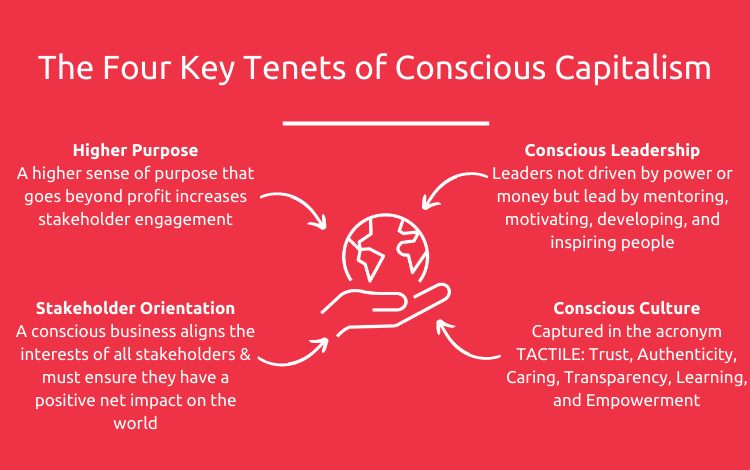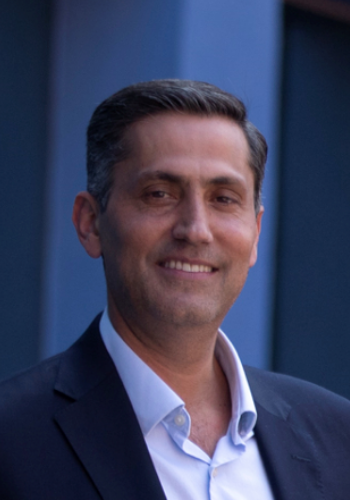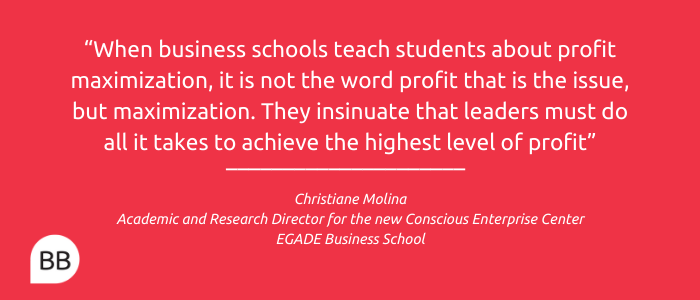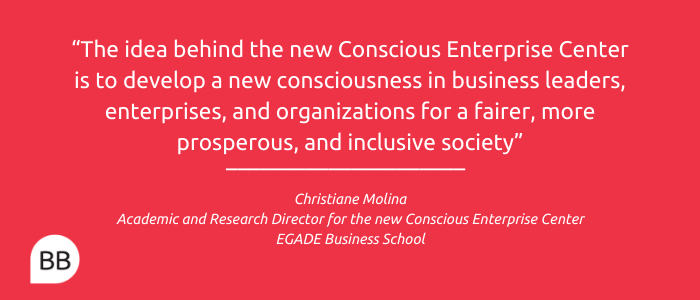Today's business leaders are thinking of ways to develop a new system of conscious capitalism, built on more circular and conscious business models.
Expert research shows that conscious companies, in the long run, outperform competitors both financially and by having a more beneficial impact on the environment and people at large.
So, what is conscious capitalism, and why are MBA students learning about it?
What is conscious capitalism?

According to Raj Sisodia (pictured), professor of conscious enterprise at Tecnologico de Monterrey and EGADE Business School and co-founder of Conscious Capitalism Inc., conscious capitalism is two things:
1) An alternative philosophy for business and capitalism
2) A global movement to change the involvement of business in society and educate current and future business leaders on how to do conscious business.
It’s based on four key tenets: higher purpose, stakeholder orientation, conscious leadership, and conscious culture. Conscious capitalism hopes to bring the onus back on stakeholders, focusing on profit for regenerative purposes rather than just maximization for shareholders.
Conscious capitalism refers to a socially responsible economic and political system built on the foundations of capitalism.

Christiane Molina (pictured), academic and research director for the new Conscious Enterprise Center (CEC) launching at EGADE Business School, also explains that conscious business is about maintaining profits while promoting a higher purpose and supporting people and the environment.
The targeted outcome is a more engaged workforce, trusting customers, innovative and profitable suppliers, as well as thriving and environmentally healthy communities.
“You need to have a purpose that goes beyond creating profit, you also need to create value for stakeholders,” Christiane explains.
Raj adds, "through the CEC, we intend to pilot and refine a comprehensive and integrated approach to teaching conscious business principles and hope to teach other business schools around the world on how to implement this new approach."

Why is conscious capitalism important?
There are two main reasons why conscious capitalism is important:
1. It offers a new sustainable ideology that transcends current CSR practices
Conscious capitalism makes up for the shortcomings of corporate sustainable responsibility (CSR) systems in firms.
Currently, firms have in-house CSR teams, or CSR leaders, who implement programs increasing the company’s social impact whilst maintaining growth and revenue goals.
But CSR can sometimes be “too limited to one direction, or department of a business, rather than being a practice that is weaved across the entire organization,” according to Christiane.
She adds, “these practices may also be abandoned if the leader or the person in charge leaves.”
That’s why EGADE has decided to launch the Conscious Enterprise Center, aiming to promote conscious capitalism, which is the core of its teaching.

“The idea behind the new Conscious Enterprise Center is to develop a new consciousness in business leaders, enterprises, and organizations; for a fairer, more prosperous, and inclusive society,” says Christiane.
Through a series of projects and initiatives focused on conscious business, the CEC aims to provide collaboration and learning opportunities among conscious-led companies.
CEC faculty will also design educational programs for EGADE MBA students in future, with the end goal being to contribute to the global development of conscious institutions and business practices.
Francisco Fernandez (pictured), executive director of the CEC, explains the focus should be on the development and nourishment of "professors, researchers, and practitioners that will in turn promote the conscious enterprise leadership mindset and required competencies."

2. Conscious capitalism promotes growth of business purpose
At a time when businesses are having to reinvent their models to become more sustainable, conscious capitalism can help the development of green business.
Conscious capitalism can help develop conscious enterprises, which contribute to the regeneration of society and are committed to doing good through responsible management.
Raj highlights, "this new approach is essential to deliver widespread human and planetary flourishing in the future."
Christiane believes it’s necessary to develop consciousness about these issues first, before building theories and practices on how to best apply it within organizations.
Sustainable and CSR practices, she says, “will emerge naturally and will be longstanding from the application and development of this consciousness from leaders, which we will promote through the CEC.”
There’s also a financial motivation in becoming a conscious enterprise: when all four tenets of conscious capitalism are applied, businesses’ cumulative results are almost eight times higher than those of S&P500 companies.

How is conscious capitalism being taught at EGADE?
Christiane hopes the educational programs created by the center will build on the school's current sustainability-focused teaching by weaving it into every part of the EGADE MBA curriculum.
“Many of the established movements are not located in Latin America, we need to contextualize the concept of sustainable and conscious enterprise in the context of Mexico and beyond,” Christiane says.
Already, EGADE MBA students take several sustainability-focus core modules, including Responsible Leadership, and Innovation and Future Thinking. They may also take an optional elective course in Conscious Leadership.
EGADE has developed various extracurricular activities for MBA students, including skill development courses in partnership with Talent 360 providing workshops around conscious business.
Every year, the school takes part in the AIM2Flourish, a global competition for students to submit stories of business innovation that promotes economic prosperity with special consideration to people and the environment.
For Francisco, the CEC can help develop conscious business teaching.
He adds, "it seeks to be an international hub that unites world-class experts and practitioners that bring the most effective concepts and best practices, not only for teaching, but also to develop research and accompaniment models."








